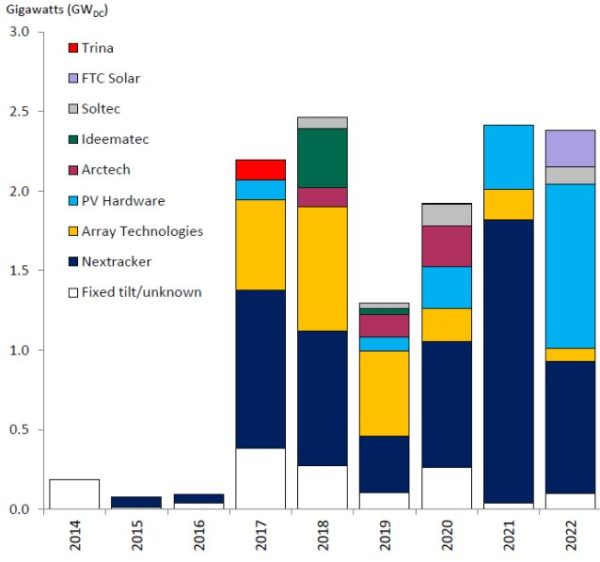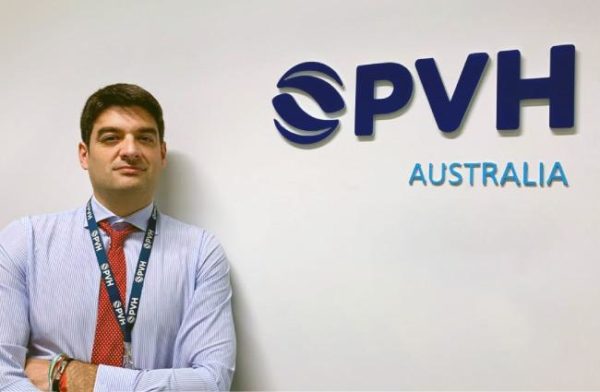PV Hardware (PVH), manufacturer of solar trackers and structures for PV plants, has reported a record $138 million in revenue in Australia in 2022, a turnover that pushes it to the top of the country’s solar tracking market for the 12-month period according to analysis from Rystad Energy RenewableCube.
While perennial heavyweights Nextracker and Array Technologies – both headquartered in the United States – continue to dominate the Australian market for overall totals, PVH said it started construction on more than 1 GW of clean energy projects last year, edging out the other top tier manufacturers.
PVH secured supply agreements with multiple large-scale projects including the 300 MW Walla Walla Solar Farm owned by Fotowatio Renewable Ventures’ (FRV), and the 330 MW Wellington North Solar Farm owned by UK-headquartered developer Lightsource BP.
The company said it has also entered into negotiations for its second Victorian Renewable Energy Target (VRET) project with an agreement expected to be signed in the first quarter of 2023.

Image: Rystad Energy
The Spanish manufacturer said it has supplied or has commitments to supply 17 projects totalling more than 1.9 GW since entering the Australian market in 2019 but despite that success PVH APAC Manager Alejandro Cantos believes the company is still in the early stages of Australia’s renewable energy growth.
Cantos said the renewable technology sector has experienced unprecedented growth but with the federal government targeting net zero emissions by 2050, the number of new energy projects being announced is mounting.
The latest data published by the Clean Energy Regulator shows large-scale wind and solar farm investment commitments grew nearly 50% in 2022 and Cantos said PVH is well positioned to take advantage of that growth.
“We still have room for improvement. Now the difficulty remains in securing our recently acquired first position in the market and we firmly believe the best is yet to come,” he said. “I firmly believe this nation has everything it needs to become a renewable superpower not only because of its abundance of raw materials and renewable natural energy sources, but also because of its geopolitical standing.”

Image: PVH
Cantos attributed PVH’s success to the company’s technical expertise, product offering and a bespoke approach to the “unique” Australian market.
“Whilst PV Hardware was already a dominant player in Europe, the Middle East and Africa, when we arrived in Australia, we immediately realised that this market was completely different and quite challenging,” he said.
“PVH specialises in adapting our structures into new landscapes and projects. Our philosophy is that if no two sites are identical, why should we apply the same solution to both? Every site is different, every project is different, and each brings its own unique set of challenges linked to its own tailored solutions.”
This content is protected by copyright and may not be reused. If you want to cooperate with us and would like to reuse some of our content, please contact: editors@pv-magazine.com.








By submitting this form you agree to pv magazine using your data for the purposes of publishing your comment.
Your personal data will only be disclosed or otherwise transmitted to third parties for the purposes of spam filtering or if this is necessary for technical maintenance of the website. Any other transfer to third parties will not take place unless this is justified on the basis of applicable data protection regulations or if pv magazine is legally obliged to do so.
You may revoke this consent at any time with effect for the future, in which case your personal data will be deleted immediately. Otherwise, your data will be deleted if pv magazine has processed your request or the purpose of data storage is fulfilled.
Further information on data privacy can be found in our Data Protection Policy.